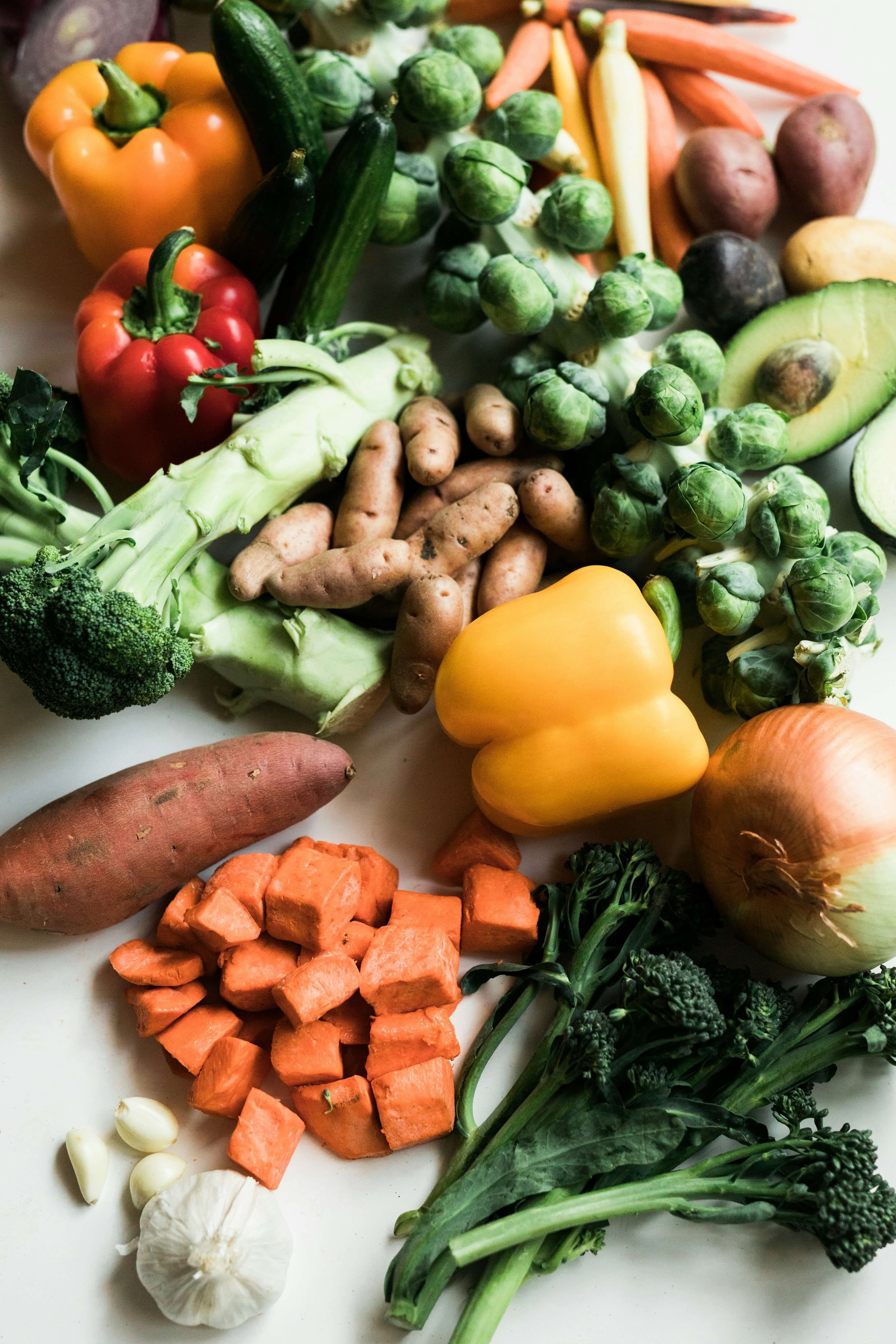5 Nutritious Winter Foods
As winter frost & chills come rolling in, it's essential to focus on nourishing your body with wholesome foods that not only provide us warmth, but that also support our overall well-being. While the selection of produce may not always be as abundant in the wintertime, here are my top 5 five nutritious winter foods to consider adding to your grocery list that can keep you both healthy and energized especially during the colder months.
Let’s get into it.
1.Winter Squash & Sweet Potatoes
Sweet potatoes and winter squashes (ex: Butternut, Spaghetti or Acorn) are nutritional powerhouses and a perfect addition to your winter diet. Packed with vitamins A and C, these vibrant starchy vegetables can help in preventing seasonal illnesses. Additionally, they contain dietary fiber which helps to promote our digestive health, and they have a lower glycemic index compared to their starchy counterparts, making them an excellent choice for maintaining steady blood sugar levels.
Some recipes I’m looking forward to cooking up this winter:
2. Citrus Fruits
Many varieties, such as oranges, grapefruits, and clementines (my personal favourite), reach their peak during these colder months. Rich in vitamin C, these fruits play a vital role in maintaining your immune system and warding off common winter ailments like colds and the flu. Citrus fruits also provide a refreshing burst of flavor and hydration, making them a delicious and nutritious snack addition.
Some must-try recipes:
3. Winter Greens
Leafy greens like kale, spinach, and Swiss chard thrive in colder temperatures, making them perfect additions to your winter meals. Packed with essential nutrients such as vitamins A, K, and C, as well as iron and fiber, these greens support overall health. Incorporating winter greens into soups, salads, or sautés adds a nutrient-dense and flavorful punch to your diet while contributing to your daily intake of essential vitamins and minerals.
Vegetables like broccoli, Brussels sprouts, cauliflower, and cabbage belong to the cruciferous family and are in peak season during winter. Rich in vitamins, minerals, and antioxidants, cruciferous vegetables offer numerous health benefits. Roasting or steaming these vegetables helps to preserve their nutritional value and enhances their natural flavors, making them a delightful and nutritious addition to your winter meals.
Some classic winter staples:
Kale Salad with Roasted Butternut Squash, Pomegranate and Pumpkin Seeds
Butternut Squash Mac n Cheese with Kale
4. Salmon
Among the variety of protein choices, salmon is renowned for its high content of omega-3 fatty acids and Vitamin D. During winter months, when cold temperatures can often put a strain on the cardiovascular system, the omega-3s in salmon may contribute to maintaining a healthy heart and promote our overall well-being. These essential fatty acids play a crucial role in supporting heart health, reducing inflammation, and enhancing cognitive function. In fact, omega-3 fatty acids found in salmon have also been linked to improved mood and mental well-being. In winter, when some people may experience seasonal affective disorder (SAD) or a general dip in mood, the consumption of salmon can contribute to mental health by supporting neurotransmitter function and reducing inflammation in the brain.
My go-to fish recipes:
5. Milk & Alternatives
Finally, milk and its alternatives play a significant role in fortifying bones during the winter months. Traditional cow's milk is an excellent source of calcium, vital for maintaining strong bones and teeth. Additionally, it provides vitamin D, essential for calcium absorption. For those who may be lactose intolerant or prefer plant-based options, alternatives like almond, soy, or oat milk are often fortified with calcium and vitamin D. These fortified plant-based milks offer a suitable alternative to support bone health, particularly important during winter when reduced exposure to sunlight can impact vitamin D synthesis. Whether you choose traditional or alternative sources, incorporating milk and its alternatives into your winter diet is a simple and effective way to ensure your bones receive the essential nutrients they need to stay strong and resilient in the face of colder temperatures.
Don’t knock it until you try it!
Adapt your grocery list and recipes to these seasonal delights!
Embracing the winter season with a focus on nutritious foods not only provides warmth but also fortifies your body against common seasonal challenges. By incorporating these types of foods into your weekly meals, you can create a well-rounded and health-promoting winter menu. Remember to savor the flavors of the season while nourishing your body with these nutrient-packed winter foods.
Happy winter cooking!
Sources:






